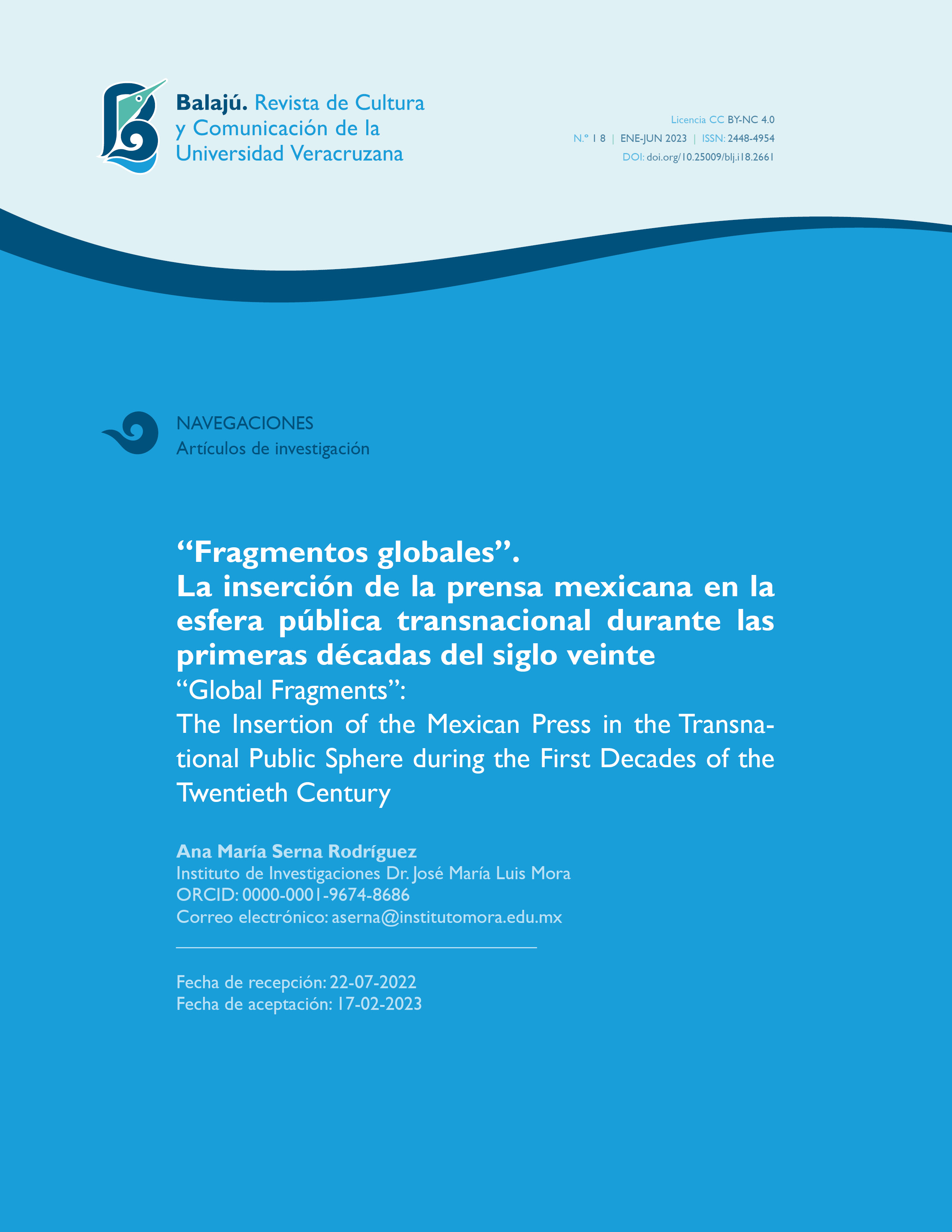Abstract
Drawing on theoretical studies of globalization processes and the public sphere, this article
analyzes debates during the first decades of the twentieth century regarding World
War I and Mexico-United States relations, in order to understand the possibilities of the
idea of a transnational public sphere in a moment in which diverse mechanisms of human
interaction collided: nationalism, local culture and global forces. The newspapers
that proliferated in Mexico during that time spread information and opinions that connected
local circumstances with the world. The performance of this role emerged from
local concerns and necessities but was immersed in a global dynamic where newspaper
writers were conscious of belonging to an international whole. The explosive potential
of these opinion flashpoints drew attention in international arenas, thus working as communicative
action hubs of a fragmented, though transnational, public sphere.
Keywords: public sphere, globalization, regionalism, nationalism, journalism

This work is licensed under a Creative Commons Attribution-NonCommercial 4.0 International License.
Copyright (c) 2023 Universidad Veracruzana


